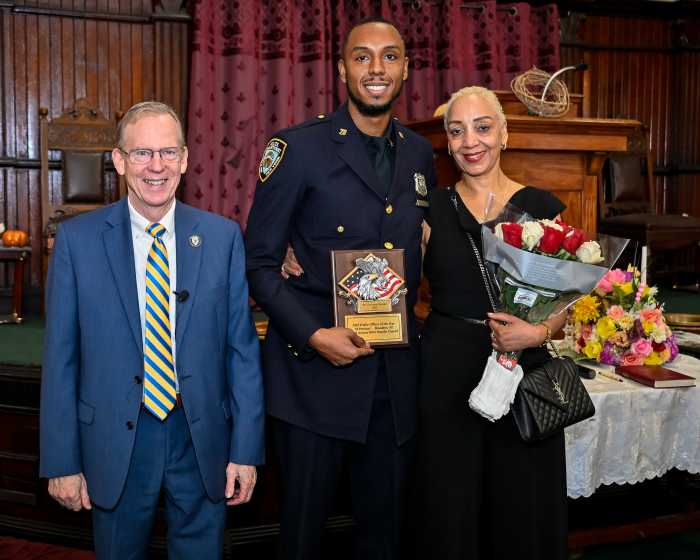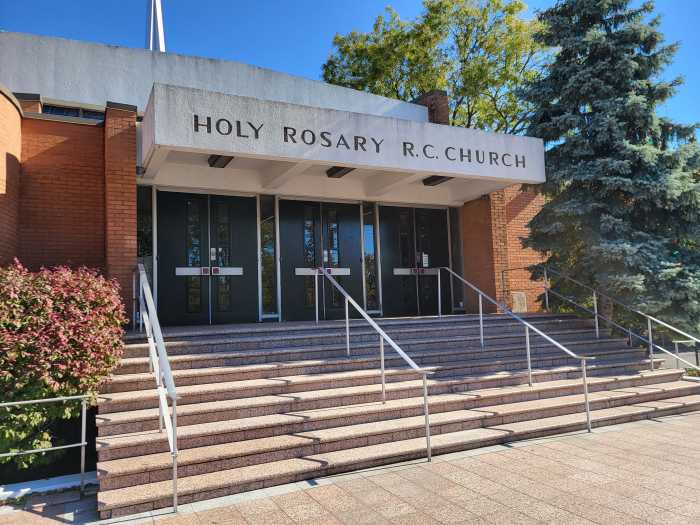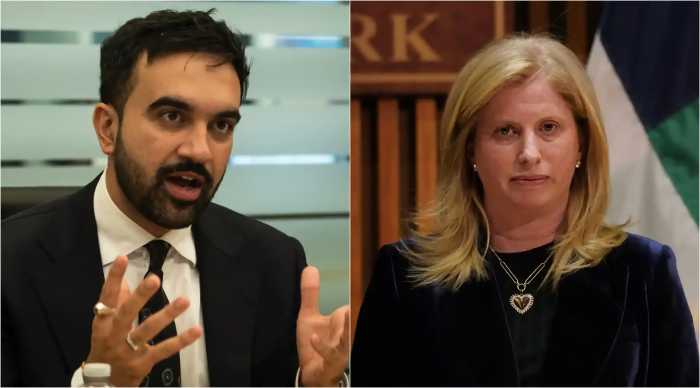Early in January, I used this space to extend an olive branch of sorts to William Donohue, a longtime foe of the gay community’s fight for equality, who leads the right-wing Catholic League for Religious and Civil Rights.
Donohue, who since that time has spoken out strongly against the gay marriage ruling in a New York Supreme Court case, caught my attention last month because he was opposing a group of Costa Mesa, California, parents who were trying to expel two kindergarten boys, being raised by a gay male couple, from the local Catholic school. Donohue argued that the children were “innocent,” and I lauded him for his ability to distinguish his disagreement with the gay rights agenda from a more simple-minded effort to turn gay and lesbian people and their families into “the other.”
While no longing a practicing Roman Catholic, I have seen the comfort that religious faith has provided others, particularly my mother, and have always harbored a wish that some rapprochement between the Catholic hierarchy and the queer community might be possible. I’ve had skepticism aplenty about the efforts of activist clergy within the church and of Dignity, but I have, mostly silently, cheered them on.
It has, of course, been impossible to ignore the implacable opposition at the top of the church, on the part of Pope John Paul II, his senior advisers and most of the bishops and cardinals in a curia he has shaped in his image over the last quarter-century.
But even by the very low standards for tolerance and inclusion that John Paul II has established over the years, excerpts from his new book, “Memory and Identity,” articulate a perspective on homosexuality that is beyond the pale for someone claiming any mantle of moral authority.
The headlines have been startling enough. The pope, accordingly to all accounts, argues that gay marriage springs from “an ideology of evil.”
Digging beneath the surface, however, provides an even more disturbing picture.
The pope’s book is based on a series of dialogues with philosophers and academics from his homeland, Poland. It would not be surprising if many of them have given considerable reflection in their lives to one of the formative events in John Paul’s own life—namely, the Nazi scourge that scarred their homeland and much of Europe more than 50 years ago.
Unfortunately, the pope’s new book looks to Nazi and totalitarian ideology as the framework for analyzing many modern trends that he decries.
Cognizant of the risks of caricaturing the pope’s views and mindful also of issues of language—the book is being issued now in its “Italian translation,” and in other languages later—after reading several news accounts of the book, I consulted a Catholic source, to give John Paul the benefit of the doubt.
In a Web posting entitled “Pope Says World Failed to Learn Lessons of 20th Century,” Catholic News, a division of Church Resources, a non-profit group with leadership that includes top church officials in Australia, John Paul is reported to link the development of Nazi and other totalitarian ideologies in the past century to “a new type of totalitarianism that threatens basic human values by promoting moral permissiveness, abortion, euthanasia, genetic manipulation, contraception and divorce.”
Catholic News goes on to report, “The pope said one egregious example was the recent legislative push to have homosexual unions recognised as an ‘alternative form of family.’”
The pope’s latest reflections do not come as that great a surprise. In the summer of 2003, just one day after Pres. George W. Bush made his first unambiguous critique of gay marriage, the Vatican issued a report emphasizing that homosexual acts violate natural law, and warning Catholic politicians, faced with questions of gay marriage, that “approval or legalization of evil is something far different from the toleration of evil.”
As early as 1975, the Vatican recognized that in some gay people, homosexuality is an “innate instinct,” but in 1986, Cardinal Joseph Ratzinger, a powerful Vatican operative, laid out this pope’s bottom line on same-sex desire—that is an “intrinsic moral evil” that should be seen as an “objective disorder.” Engaging in gay sex, according to Ratzinger, is “essentially self-indulgent.” Six years later, the church declared that discrimination against gay was “not unjust” if it involved adoption, foster care, teaching and military service.
Church spokesmen have at times—but only at times—been careful to separate church teaching from violent homophobia. In 1994, the church Catechism, its official teaching, adopted the following language: “Homosexual people must be treated with respect, compassion and sensitivity; all unjust discrimination toward them should be avoided.” American bishops, more attuned to the demands for dignified treatment of gay and lesbian people, went further in their 1997 letter, “Always Our Children,” stating that, “nothing in the Bible or Catholic teaching can be used to justify prejudicial or discriminatory attitudes and behaviors towards homosexual people; the fundamental rights of homosexual persons must be defended; and all must strive to eliminate injustice, oppression or violence.”
Unfortunately, none of this rhetoric can drown out the memory of another point that Ratzinger made—a thuggish threat, really—in his 1986 letter: “When civil legislation is introduced to protect behavior to which no one has any conceivable right, neither the Church nor society at large should be surprised when other distorted notions and practices gain ground, and irrational and violent reactions increase.”
Now Ratzinger’s superior has published, in his twilight, reflections linking gay and lesbian people to the most vicious, deadly ideology of the 20th century.
I am cautious about ascribing responsibility for anti-gay violence to every person who speaks out against our rights, but with his new book, the question arises once more as to the level of culpability that Pope John Paul II bears for the brutal hatred visited upon members of our community again and again.
gaycitynews.com













